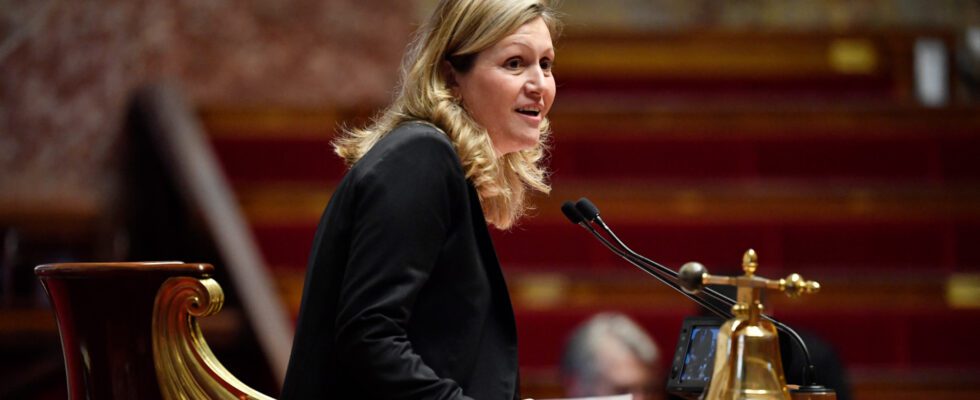The National Assembly was due to adopt the renewable energy acceleration bill on Tuesday afternoon, but a technical problem delayed the vote. After a moment of confusion and a series of attempts at electronic voting with the usual buttons on the desks, President Yaël Braun-Pivet suspended the session in order to organize a ballot by paper ballots. This takes place from 7:30 p.m. in the lounges adjoining the hemicycle, and the National Assembly adopted Tuesday at first reading the bill dedicated to renewable energies, with the support of the Socialist deputies.
Equipped with paper ballots, the deputies supported the text by 286 votes against 238, after a broad green light from the Senate in early November. Deputies and senators will try to agree on a compromise text on January 24, with a view to final adoption.
Previously, the holder of the perch had announced the adoption of the text at first reading by 260 votes against 213, but several deputies assured that the system was defective.
A ballot that could be tight
This moment of hesitation takes place around a vote which could be tight, even if the announced support of the socialist group and part of the small independent group Liot gives air to the government. “This law has been the subject of a real work of dialogue between the different political camps and with the government”, estimated the PS deputy Dominique Potier, who claims “major progress” thanks to the 70 amendments of his group.
What relieve the executive who counted the forces present before this solemn ballot which is held shortly after the announcement by Elisabeth Borne of a postponement of the legal retirement age to 64 years.
A “waiting abstention” for environmentalists
The text on renewable energies “accelerates the projects by several years (…) It is a fact. So either the opposition groups (on the left) are consistent with their presidential and legislative program (…), or they remain in the political posture and choose the opposition in principle,” energy transition minister Agnès Pannier-Runacher told AFP on Monday. Environmentalists have opted for a “waiting abstention” in order to “put the pressure on”. “We expect better”, for example on the deployment of renewables on existing buildings, underlines the head of EELV Marine Tondelier.
The rebellious will vote against, worrying about “a liberalized market” with a “multitude of over-the-counter contracts”, according to Maxime Laisney. They criticize the macronists for having “restored a quasi-right of veto for the mayors in an endless procedure”, before the installation of onshore wind turbines or solar panels.
Hostile to the bill, the communist Sébastien Jumel called for not making a “gift to the government” on the day of the announcement of the presentation of the pension reform. The Senate, with a right-wing majority, largely supported the text dedicated to renewables in early November. If the National Assembly in turn gives the green light, a joint commission will bring together deputies and senators, a priori on January 24, to try to establish a compromise text, with a view to final adoption.
“Unjustified exemptions granted to wind power”, according to LR
The executive quickly understood that the LR deputies would adopt a harder line than their fellow senators. They dispute “unjustified derogations granted to wind power”, “intermittent energy” and a “salami” of energy texts. A bill dedicated to nuclear power arrives in the Senate on January 17, before the future multi-annual energy program. On the far right, the RN Nicolas Meizonnet castigated the future solar panels and wind turbines “everywhere and as far as the eye can see”, a “scandal” which will “massacre landscape and heritage”, for “intermittent energies” of “very low yield”.
This bill aims to reduce installation times and catch up with France’s significant delay in terms of renewable energies: 19.3% of gross final energy consumption, well below its European neighbours. Among the main debates: the sensitive subject of the approval of mayors before installing onshore wind turbines and solar panels. In line with a compromise found in the Senate, the Assembly validated a planning device, with priority “acceleration” zones for installing renewables, subject to the approval of the municipalities.
A form of “gas plant” according to the WWF
The measure has tensed the left and NGOs like Greenpeace, which deplores “a major black spot that will further curb the development of onshore wind power in France”. WWF also fears a form of “gas factory”.
On the professional side, the president of the renewable energies union, Jules Nyssen, notes “positive points” on access to land for photovoltaics, but also “setbacks” and “points of vigilance”, for example the withdrawal of the rebate on the bill of local residents. The Assembly favored a socialist proposal to finance broader territorial measures: funds for households in fuel poverty or for biodiversity.
